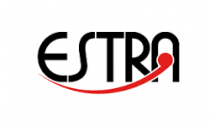Doing Your Taxes for the First Time? We've Got You Covered by Timberline Financial
NEW YORK, March 20, 2019 /PRNewswire-PRWeb/ -- Maybe you worked your first job last year. Maybe you've had friends, family or professionals filing your taxes for years. Whatever your personal circumstances, you're finally ready to take the plunge. Taxes can seem complicated and cumbersome, but if you're nervous about doing your taxes for the first time, we've got you covered. Here are some tips to help you get started.
Determine Your Need To File
-- The first step in filing your taxes is determining if you need to file.
If you are under age 65, single and had a gross income of at least
$12,000, you must file your taxes. Chart A can be found on page 10 of
the instructions for 2018's 1040 and gives a detailed picture of whether
or not you need to file. However, even if you don't need to file a
return, if your employer withheld federal taxes from your paycheck, you
may be entitled to a refund, so it is in your best interest to file.
1040EZ
-- Don't let long forms and complicated language intimidate you. A majority
of people who are filing their taxes for the first time are qualified to
file using IRS Form 1040EZ. If you earned less than $100,000 in taxable
income, do not claim any dependents and file as single or married filing
jointly, you are eligible to file using this form.
Get All Your Paperwork In Order
-- Before you start to file, make sure you have received a Form W-2 from
every employer you worked for. It not only provides you with your gross
wages, but also informs you of how much you have already paid towards
your federal taxes throughout the year.
Contract And Freelance Work
-- Many of us have to pick up side jobs to make ends meet. If you performed
freelance or contract work and earned at least $600, you must also have
a 1099 from the company you worked with before you file your 1040.
Retirement Contributions
-- If you have been contributing to a 401(k), 403(b) or other retirement
plan through your employer, you may be able to claim the Retirement
Savings Contribution Credit. While a deduction reduces your taxable
income, a credit reduces your tax liability dollar-for-dollar. The
maximum credit amount is $2,000 if you are single or married filing
separately or $4,000 if you are married filing jointly. This means, if
you are single, owe $2,900 in taxes and qualify for a $2,000 Retirement
Savings Contribution Credit, your tax liability for the year is reduced
to $900.
The Power Of Deductions
-- On December 22, 2017, President Trump signed the Tax Cuts and Jobs Act
and shook the personal income tax industry to its core. Some of these
laws have not yet gone into effect but many of them have, and they
benefit the average, hardworking American. The TCJA nearly doubled the
standard deduction for single filers to $12,000 and joint filers to
$24,000. In 2017, the standard deduction was $6,350 for single
individuals and married couples filing separately. The vast majority of
Americans could not afford to make enough charitable contributions to
reduce their taxable income past the standard deduction while also
keeping themselves and their families above water.
Next Steps
-- Getting a refund feels great, especially if you feel overwhelmed by
debt. However, this money would serve you much better throughout the
year. If you receive a large refund, talk to your employer's HR
department about adjusting your withholdings for 2019 by adjusting your
W-4. The more allowances you claim, the less money will be withheld from
each paycheck. If you had no tax liability in 2018 and expect to have no
tax liability in 2019, your employer will not withhold any federal taxes
from your paycheck.
If you are burdened with high amounts of credit card debt and are struggling to make your payments, or you're just not seeing your balances go down, call Timberline Financial today for a free financial analysis.
Our team of highly skilled professionals will evaluate your current situation to see if you may qualify for one of our debt relief programs. You don't have to struggle with high-interest credit card debt any longer.
Call (855) 250-8329 or get in touch with us by sending a message through our website https://timberlinefinancial.com.
SOURCE Timberline Financial





